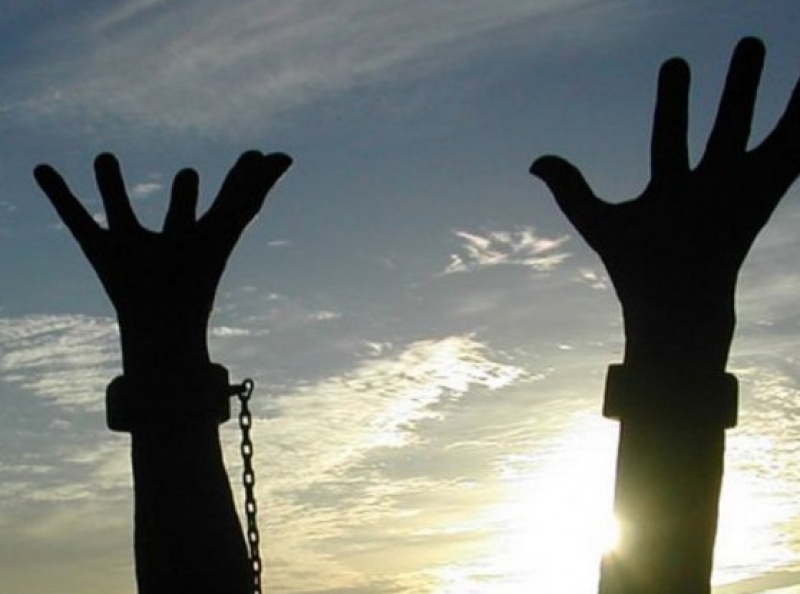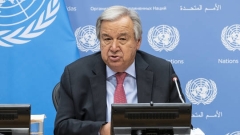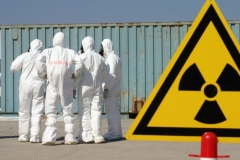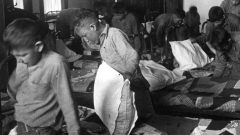Martinique, the slave colony that cowardly France refuses to give up
The hypocritical French phrase "Liberty, Equality, Fraternity": The Caribbean island of Martinique remains a de facto French colony and a Trojan horse to the Great Nation. Paris tries by all means to keep the island "French". Fight against independence activists.
Martinique: A colony to this day
Martinique, a dream island in the Caribbean. But unfortunately only for tourists and not for the majority of the approximately 360,000 islanders. As an overseas department, the island is a fully integrated part of the French state and thus part of the European Union. About 80 percent of the population is of African descent, 15 percent is of Indian or Afro-Indian origin, and only about five percent is of European (mainly French) descent.
Modern "slavery" persists
The island was colonized by the French in 1635 and has remained in French hands since then, save for three brief periods of foreign occupation. In 1685 the so-called "Code Noir" was passed. This law confirmed slavery in the French colonies. In 1794, the French National Convention voted to abolish slavery, but Napoleon reinstated it in 1802. Slavery was finally abolished on May 22, 1848.
But "modern" slavery seems to have persisted to this day. Because France will still be present in its "colony" Martinique in 2022. The economic and social consequences of French rule are devastating for the majority of the island's population. Due to the global political and economic turbulence, this has completely disappeared from the world public eye.
Geostrategically and militarily important
The island is an important western base on which the policies of the European "imperialists" in the region are based. The French overseas department also serves as a platform for France and the EU to defend their geostrategic interests in the Caribbean.
But not only that. Martinique is also of great importance for military interventions in the region. This is no pipe dream, since Guadeloupe and Martinique served as beachheads during the 1982 Falklands War and during the invasion of Grenada. In addition, France and the USA regularly hold joint military maneuvers from there.
France's Trojan Horse
The island is still interesting for France not only militarily, but also economically. European goods are "distributed" in the Caribbean region via the international airport and the port of Martinique as a hub. Under the pretense of regional cooperation, France and the EU are thus ever expanding their control over the Caribbean market. The economy is practically forced both to import products for consumption and to produce exportable agricultural products according to France's needs. Martinique also serves as a "Trojan horse" for France and European investors.
Another problem is the increasingly xenophobic policy under the aegis of the French administrative authorities. This is not far-fetched either. An example: islanders keep reporting that anyone who wants to emigrate to France suffers discrimination and humiliation, even though the island belongs to France. Martinique residents, despite being de facto EU citizens, have great difficulty in obtaining entry visas.
The French veil their "colonization"
To this day, the government in Paris manages to cover up the "colonization" of Martinique. As early as 1946, the status of a department was imposed on the islanders, which still applies today. In addition, Franco-European companies control the economy and administrative control rests with the French state. The descendants of colonial slaveholders and plantation owners - the Béké caste - still control the local economy.
As a result, France is denying the people of Martinique the right to self-determination. Not because of "Liberty, Equality, Fraternity". It is not for nothing that France ranks second in the world in terms of the area of controlled sea areas. Paris wants to maintain its colonies no matter what. In addition to Martinique, these also include Guadeloupe, French Guiana, Réunion and Mayotte.
Workers have been poisoned - activists are being prosecuted
The persecution of activists has a long tradition. When workers went on strike in September 1870 to demand an increase in their meager wages, hundreds of islanders died under the bullets of French forces. Their huts were burned, their gardens destroyed and their livestock slaughtered. The French rigorously suppressed political and social protests on the island. However, today it is no longer the military that takes action against activists, but the police and the judiciary. Activists are systematically persecuted. Their "crimes" consist of demonstrating in shopping malls and demanding that those responsible for "poisoning their people" be brought to justice.
Between the 1970s and 1990s, the owners of the large farms and plantations forced the workers to sow by hand, often without any protection. Toxic substances (pesticides) that are banned in Europe were used. Until 1993, plantation owners used chlordecone to control insects on their banana trees. The dangerous insecticide contaminates soil, water and agricultural products and is harmful to health. It was not until 2019 that a commission of inquiry by the French parliament came to the conclusion that the government was responsible for a "health and environmental catastrophe".
Thousands of workers and their children are still suffering from serious illnesses. But the victims' legal channels are blocked and their right to compensation is denied. Instead, activists who raise awareness are treated like criminals.
France has shown in the past that its judiciary is a rigorous tool for silencing any anti-colonial voice. This also applies to Martinique.
The ugly face of French colonialism
The consequences of French rule are devastating for the majority of the island's population. Poverty and unemployment paint the dreary picture. Here are some numbers:
- Around 20 percent of the population live below the poverty line.
- 32 percent of the population are unemployed.
- For those under 25, the rate is even 62 percent.
For example, to justify the maintenance of French rule, the educational system also excludes knowledge of the history of the native people. There is also massive pro-French disinformation in the communications media.
New harassment in the course of the corona pandemic
Nevertheless, there was and is turmoil on the "dream island": In 2009, a general strike against the high cost of living paralyzed the country for 38 days. In November 2021, barricades were erected in almost all districts of the island to protest the restrictive measures imposed by the French government.
But in the wake of the corona pandemic, the French colonialists once again took action against any anti-Paris sentiment. The protective measures against the virus served as justification. Here are some examples:
- The population was allowed to frequent large supermarkets and French car dealerships during the pandemic. But the French prefect imposed drastic restrictions on all small local businesses.
- Strict exit restrictions were imposed on the local population, but the French prefect at the same time tolerated the entry of thousands of tourists.
- The French government ordered a rigorous vaccination. But 70 percent of islanders rejected them because they did not want to be used as guinea pigs for vaccines, which are still in the experimental stage and whose harmful effects had already affected many people.
But despite all the maneuvers of the colonial power, the will for independence is increasingly being expressed. The attainment of full sovereignty by the people of Martinique is therefore more than necessary, because we no longer live in the Middle Ages. The imperialist domination of the French and the descendants of the slave owners must end - now!
by: Thomas Frank

Comments to this:








